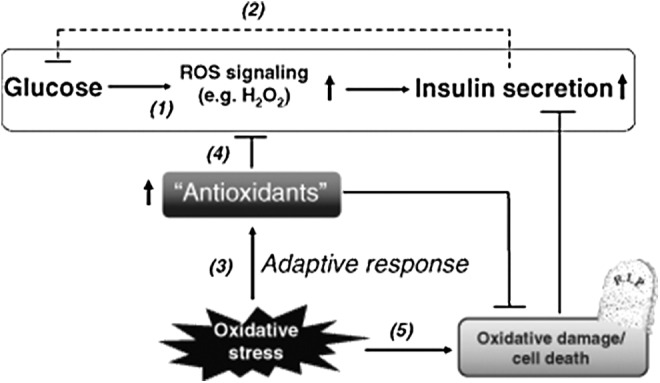FIG. 5.

Simple scheme of how ROS could affect GSIS. 1. Glucose metabolism in beta cell produces transient increase in ROS. Together with other glucose-derived signals (e.g., ATP/ADP), insulin is secreted. 2. The action of insulin on target tissues (indicated by the dashed line) results in glucose uptake and a lowering of net plasma glucose levels. 3. Oxidative stress sets in motion the increase in enzymes and small-molecule antioxidants to scavenge these radicals. 4. This antioxidant response has the potential to also scavenge the transiently generated ROS in response to glucose in 1., thus blunting the GSIS response. 5. Exaggerated and persistent oxidative stress that is unrelieved by antioxidants can lead to cell damage and death; beta-cell destruction will also result in impaired GSIS. [Reprinted from Pi and Collins (143) with permission from Wiley]. ATP, adenosine triphosphate; ROS, reactive oxygen species.
